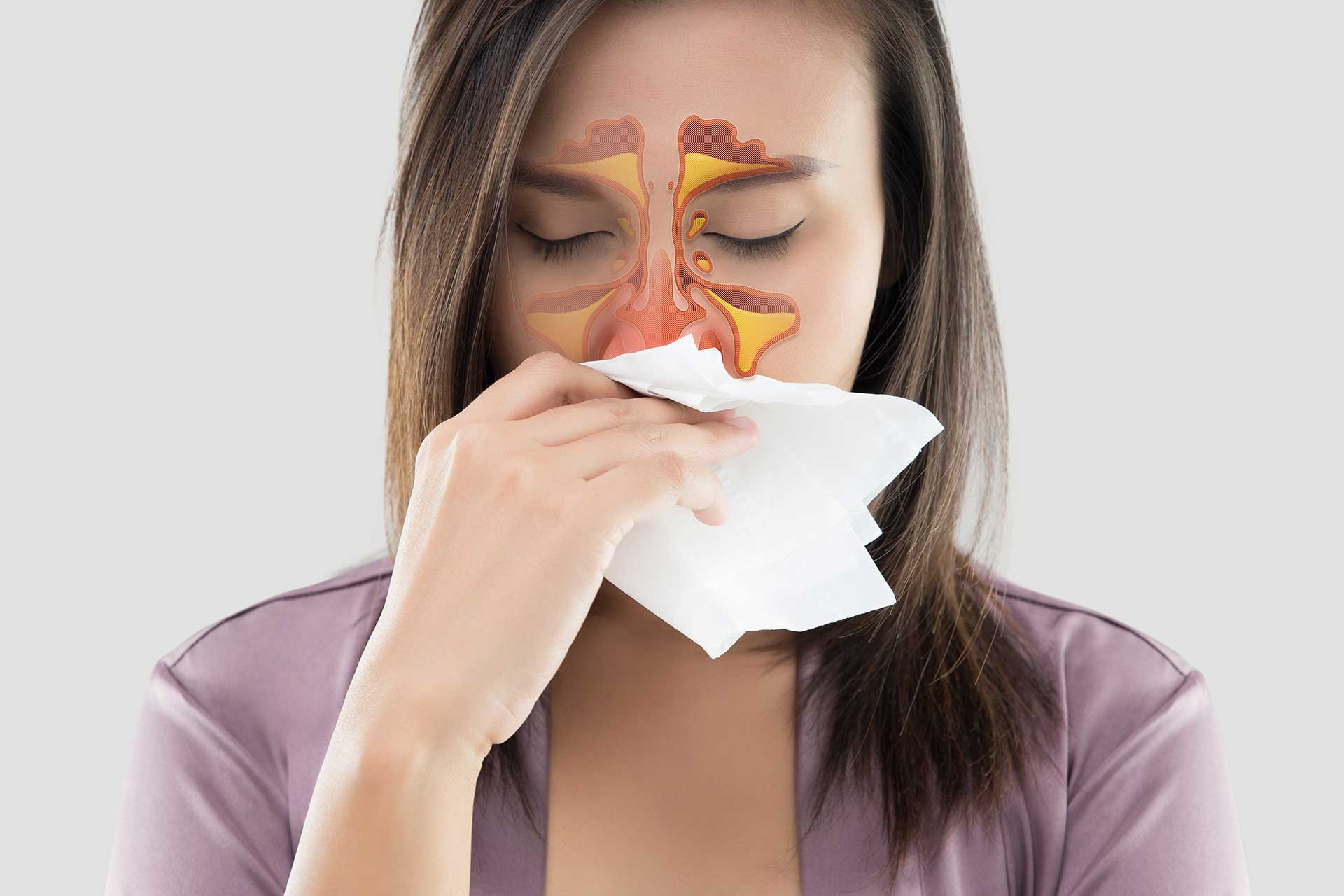Our patients often ask us if they should go to urgent care for sinusitis. At Northern Valley Allergy Asthma and Sinus Center, we want all patients to know that urgent care isn’t necessary when suffering from sinusitis; the specialists at our offices are qualified to deal with all of the varying degrees of this illness. Here is some helpful information about Sinusitis symptoms and treatment.
What is Sinusitis?
Sinusitis occurs when you have sinus swelling, typically caused by an infection. It causes your sinuses to swell and inflame, interfering with drainage and, in turn, causing mucus buildup.
It may be hard to breathe through your nose, the space around your face and eyes may feel swollen, and you may have a headache or throbbing facial pain. The common cold, which is also known as an Upper Respiratory Infection (URI), is the most frequent cause of Sinusitis, and during your time with Acute Sinusitis, you may experience the following symptoms:
- Discharge that’s yellow or greenish draining from your nose or the back of your throat.
- Congestion or nasal obstruction that makes it difficult to breathe through your nose.
- Swelling, tenderness, pressure, and pain around your eyes, forehead, or nose worsen when you bend over.
Unless you develop a bacterial infection, most cases of Acute Sinusitis resolve within a week, and home remedies might be all you need for effective treatment.
Treatment For Chronic & Acute Sinusitis
Chronic Sinusitis
The allergists at Northern Valley Allergy, Asthma & Sinus Center often treat nasal obstructions with medicines, but upon all visits concerning the matter, the practitioner will address all reversible causes of nasal swelling. A bacterial infection doesn’t typically cause Chronic Sinusitis; therefore, antibiotics won’t help with this condition. Some ways of treating Chronic Sinusitis include:
- Intranasal corticosteroid sprays
- Avoiding triggers (typically related to environmental factors and allergies)
- Topical antihistamine pills or sprays
- Antifungal medicine
- Surgery (usually for correcting structural problems like a deviated nasal septum)
- Leukotriene antagonists (pain relievers)
- Treating an underlying condition (asthma or allergies)
Acute Sinusitis
When cases of Acute Sinusitis occur, it’s typically a short-term condition that’s not too severe. Many people need little or no treatment, and most individuals will improve independently after seven to 10 days. Other modes of recovery include:
- Nasal sprays (like nasal steroids) and decongestants, you should use these for no longer than three days unless your healthcare provider says you should.
- Get extra rest and drink extra fluids.
- Use over-the-counter pain relievers like acetaminophen or ibuprofen if you have significant pain.
- Clean your nasal passages with saline solution. Since this is just salt and sterile water applied to the nose for cleaning, you can continue longer than five days.
Contact Northern Valley Allergy, Asthma and Sinus Center Today
The next time you find yourself frustrated and wondering why you can’t breathe well through your nose, make an appointment at Northern Valley Allergy, Asthma, and Sinus to see if you’re suffering from a nasal obstruction or sinusitis. Treatment can help improve symptoms and restore normal breathing. Schedule your visit today.





